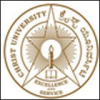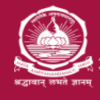How to become a Literary Proofreader
Overview, Courses, Exam, Colleges, Pathways, Salary

Overview
Who is Literary Proofreader ?
A Literary Proofreader" specialises in meticulously reviewing and enhancing written works within the literature. With a keen eye for detail and an astute understanding of language, grammar, and style, they ensure that literary texts, such as novels, short stories, essays, and poetry, are polished to perfection. Their role involves identifying and rectifying spelling, punctuation, syntax, and formatting errors while providing constructive suggestions to refine the overall flow and coherence of the content. A Literary Proofreader plays a crucial role in maintaining the integrity and quality of literary creations, aiding authors in conveying their messages effectively and engaging readers without distractions. Their dedication to maintaining the authenticity of the author's voice while adhering to established conventions makes them indispensable contributors to the world of literature.
Typical day at work
What does Literary Proofreader do?
Proofreaders gets involved in a literary work after author, editor, and typesetter have done their parts. It is the proofreader's role to act as a fresh pair of eyes, spotting any mistakes that otherwise might have missed.
- Read and assess written text for errors in grammar and typography
- Communicate with writers and editors to determine the composition of specific texts in a document
- Confirm accuracy of content by research and using references
- Match typeset proofs against original copy to recognise errors or omission
- Use word processors and other specialized software to make changes on typeset documents
- Evaluate the dimensions of page elements such as images, text spacing and positioning to ensure they conform to set specifications
- Ensure page numbers are in the correct sequence and not repeated or omitted
- Scan documents to confirm chapter titles match list of contents
- Use standard and recognized symbols by printing and publishing companies to mark corrections
- Ensure the marked corrections highlighted by editors/authors reflect on the master set proof
- Rephrase written text to confirm consistency of document structure and content
- Stay well-informed with grammatical development and new language terminologies
- Ensure illustrations, pictures, and graphs are aptly captioned and referenced
- Interact with authors to clarify grammatical inconsistencies
- Forward proofread materials for approval and publication
- Ensure project is completed within set time constraints.
- Ensure chapter titles match the list of contents
- Ensure of no confusing words or column or page breaks
- Ensure headings and captions are correct
- Checking book and e-book manuscripts for errors
- Checking articles before they’re posted in newspapers, blogs, periodicals, or websites
- Reviewing legal and business documents for potential incongruities
- Making sure academic papers are without issues
- Making sure webpages are free of grammatical or formatting issues
- Checking English as a second language writings.
Abilities and Aptitude needed
What are the skills, abilities & aptitude needed to become Literary Proofreader?
A literary proofreader needs to be skilled in written language, usually English. They also need to have good people skills, ability to work well with others, and verbal communication skills. The need for good interpersonal skills helps build working relationships and contacts with potential clients.
They must also possess ability to work independently and to stay focused throughout an entire document which may be long and technical, requiring good concentration.
They also need to have eye for detail, be self-motivated, persistence and determination. They should be adaptable, flexible, and open to change to work within the style of the author and publisher, rather than impose their own ideas.
They need to have good judgement to gauge the errors in a literary work. This also requires familiarity with word processing and other computer editorial software. Likewise, familiarity with the production process for books and documents would have an additional benefit.
Salary
Salary for Literary Proofreader?
The salary of A Literary Proofreader is as follows :
- Minimum Monthly Income: Entry-level Literary Proofreaders in India typically embark on careers with a minimum monthly income of around INR 12,000 to INR 18,000. These professionals meticulously review written content for grammatical errors, spelling mistakes, and consistency in formatting.
- Maximum Monthly Income: Highly skilled Literary Proofreaders, particularly those with a strong grasp of language nuances, style guides, and attention to detail, can earn a maximum monthly income ranging from INR 25,000 to INR 40,000 or more.
- Annual Income: A Literary Proofreader's annual income is influenced by experience, ability to handle diverse content genres, demand for accurate proofreading, and proficiency in proofreading tools. Accomplished Proofreaders who consistently ensure polished manuscripts and error-free content may earn an annual income from INR 1,50,000 to INR 4,80,000 or higher.
- Highest Earning Opportunities and Scope: Literary Proofreaders specializing in specific genres (e.g., technical, academic, fiction) or those collaborating with established publishing houses might attain higher earnings. Additionally, those who excel in maintaining the author's voice while enhancing readability and coherence can boost their earning potential. The demand for skilled Literary Proofreaders is promising as the publishing industry seeks error-free and professionally polished content to engage readers effectively.
Pathways
How to become an Literary Proofreader?
Entrance Exam
Entrance Exam for Literary Proofreader ?
Courses
Which course I can pursue?
Best Colleges
Which are the best colleges to attend to become an Literary Proofreader?
Industries
Which Industries are open for Literary Proofreader?
A Literary Proofreader can find opportunities in various industries where written communication and literature play a significant role. Here are some industries that commonly require the services of a Literary Proofreader:
- Publishing: Traditional publishing houses and independent publishers often employ proofreaders to review and refine manuscripts as books, magazines, or other printed materials before publication.
- Literary Agencies: Literary agents may need proofreaders to review and polish manuscripts submitted by authors before pitching them to publishers.
- Online Writing Platforms: Websites, blogs, and online magazines that feature literary content often hire proofreaders to ensure the quality and accuracy of their articles, stories, and essays.
- Academic Publishing: Proofreaders must review scholarly articles, research papers, theses, and other academic documents to maintain clarity and correctness.
- Media and Journalism: Newspapers, magazines, and other media outlets require proofreaders to ensure that news articles, features, and editorials are error-free and well-structured.
- Advertising and Marketing: Marketing agencies and companies that produce promotional materials may employ proofreaders to ensure that advertisements, brochures, and other written content are polished and persuasive.
- Content Creation Companies: Businesses specialising in content creation, such as content marketing agencies, may hire proofreaders to refine written content for websites, social media, and other platforms.
- Educational Institutions: Schools, colleges, and universities often require proofreaders to review educational materials, textbooks, and curriculum documents.
- Literary Magazines: Magazines focused on literature, poetry, and creative writing often hire proofreaders to maintain the quality of their published pieces.
- Self-Publishing Authors: Independent authors who self-publish their books may seek the services of a proofreader to ensure their work is free from errors before publication.
- Translation and Localisation: Companies involved in translation and localisation services may need proofreaders to review translated content for accuracy and fluency.
- Corporate Communications: Large corporations may employ proofreaders to review internal and external communications, including reports, memos, and presentations.
- E-learning and Educational Technology: Companies that develop e-learning courses and educational software may require proofreaders to review instructional materials.
- Nonprofit Organisations: Nonprofits that produce written materials, such as reports, newsletters, and fundraising appeals, may need proofreaders to ensure effective communication.
internship
Are there internships available for Literary Proofreader?
Internship opportunities for a Literary Proofreader can provide valuable hands-on experience in editing and publishing. Publishing houses, literary agencies, online platforms, and media companies typically offer these internships. Responsibilities may include:
- Proofreading: Reviewing and correcting manuscripts for grammar, punctuation, spelling, and style consistency.
- Editing Assistance: Assisting senior proofreaders or editors in revising and refining written content.
- Style Guide Adherence: Ensuring manuscripts adhere to specific style guides or established publishing standards.
- Collaboration: Working closely with authors, editors, and other team members to ensure the quality of the final product.
- Feedback and Suggestions: Providing constructive feedback and suggestions to enhance the content's clarity, coherence, and overall impact.
- Document Formatting: Ensuring proper formatting and layout of manuscripts for print or digital publication.
- Research: Research literary trends, market analysis, and potential target audiences.
- Administrative Tasks: Assisting with administrative tasks such as tracking manuscripts, managing submissions, and maintaining databases.
- Proofreading Software: Gaining familiarity with proofreading software and tools commonly used in the industry.
- Professional Development: Participating in workshops, training sessions, and meetings to enhance proofreading skills and industry knowledge.
Career outlook
What does the future look like for Literary Proofreader?
After gaining experience, proofreaders may work in higher-level positions, such as head proofreader, copy editor, and associate editor. Such positions usually involve supervision of other editorial employees as well as establish goals and deadlines to guarantee the timely completion of projects.
Publishers, graphic design houses, printers, and organizations with too much publishing employ proofreaders on a full-time or freelance basis. A lot of proofreaders are self-employed and work from home.
They may work on books, magazines, blogs, newspapers, websites, and academic or business or journals and manuals.
Keep in mind that this is a competitive field, and it can be stressful due to tight deadlines. Potential salary may also differ by employer and publication.







.webp)